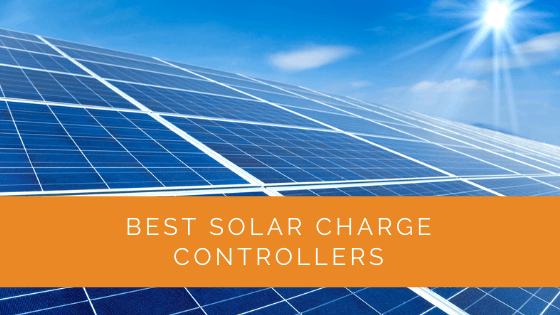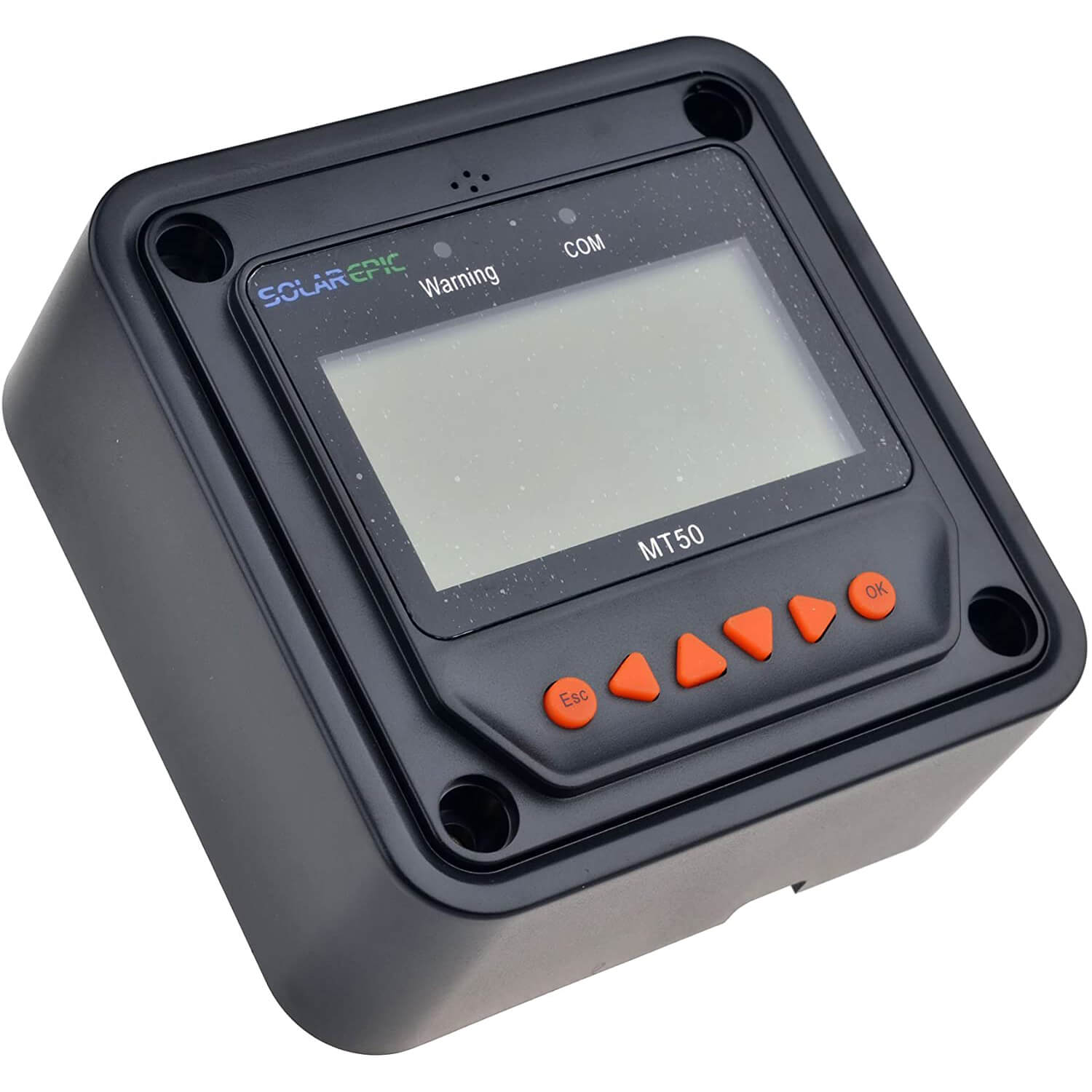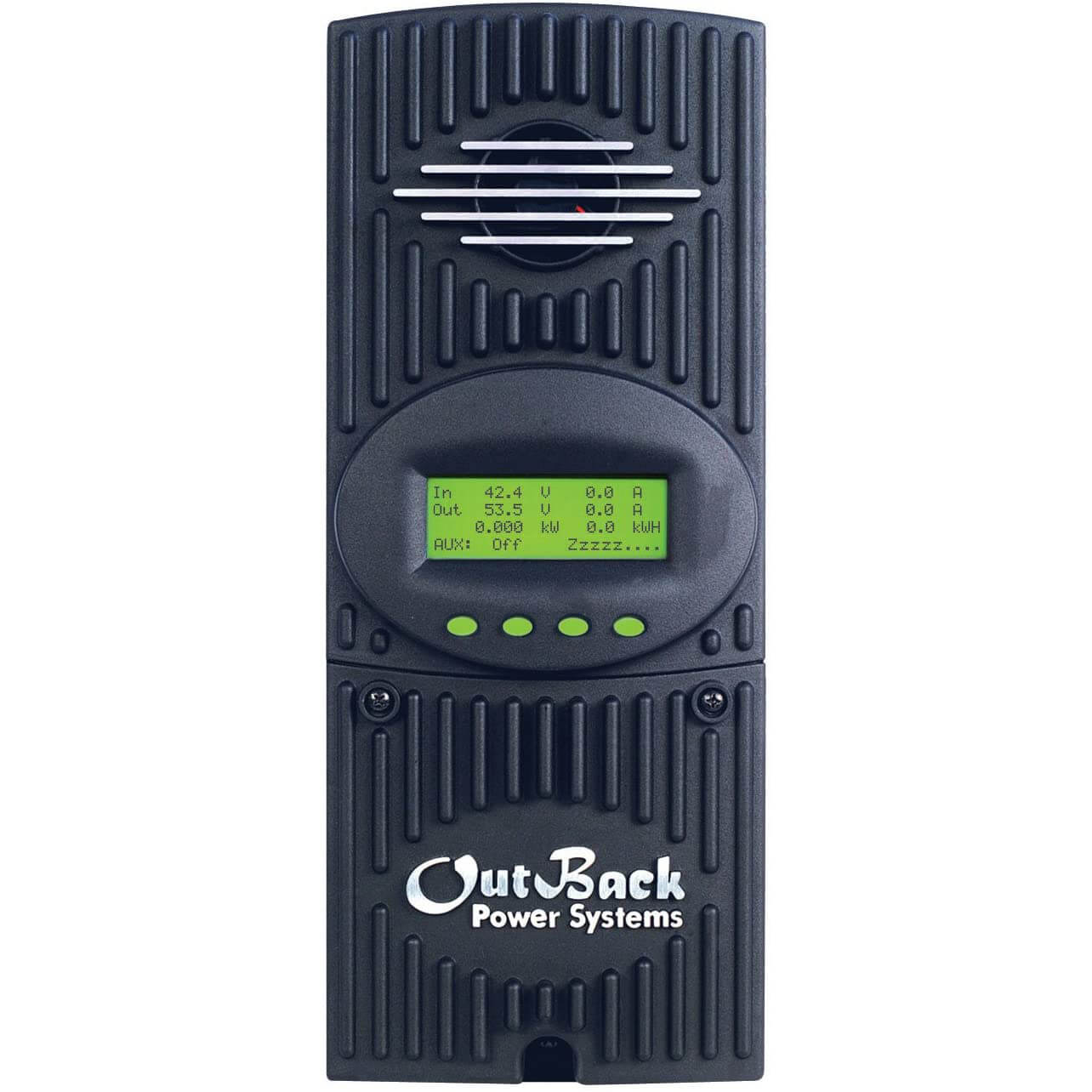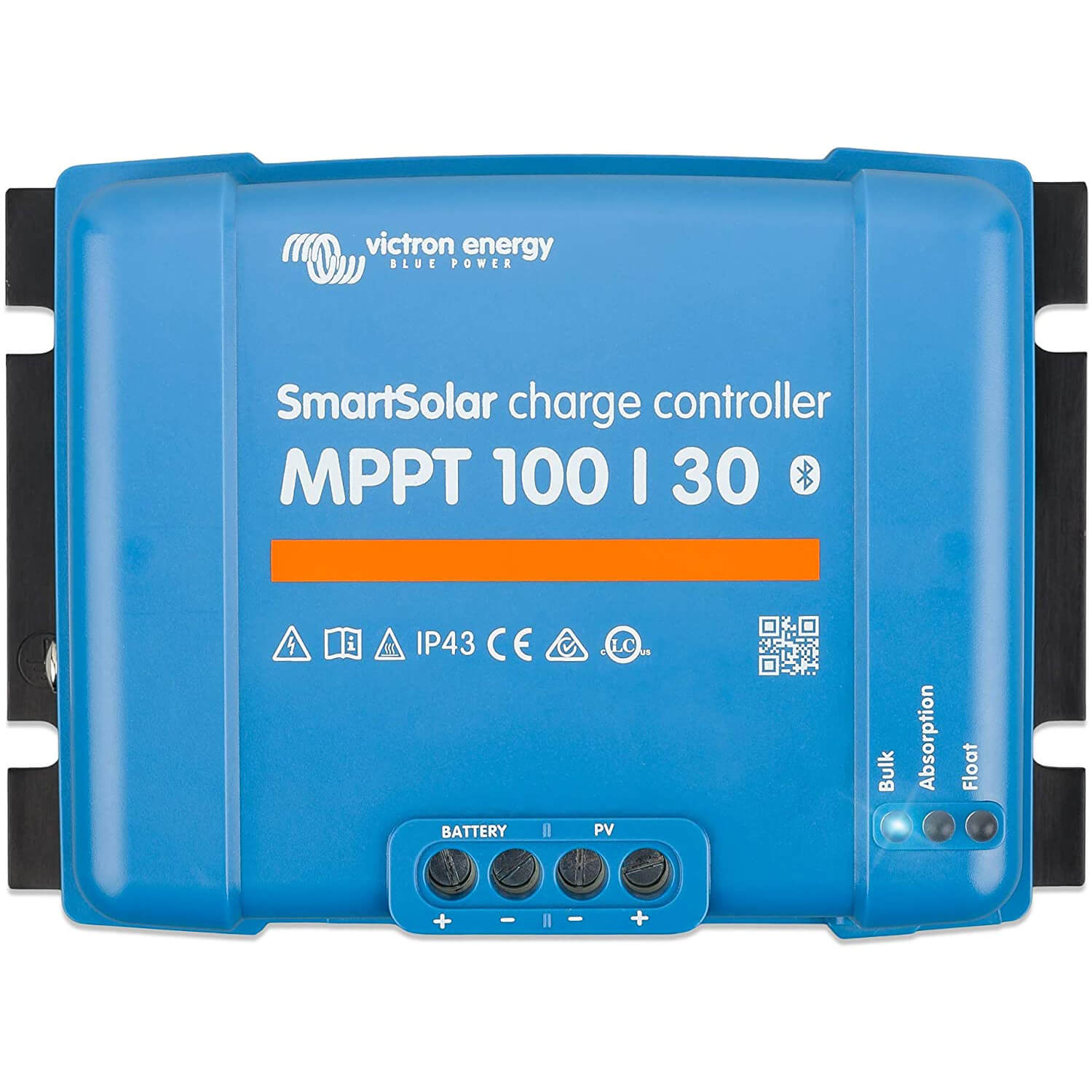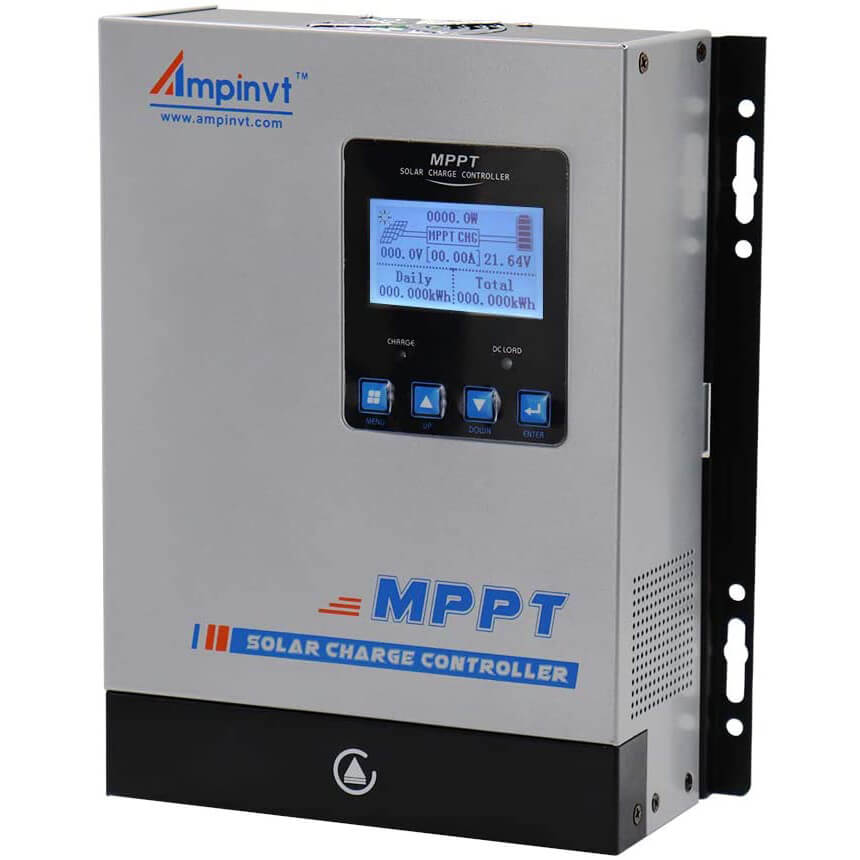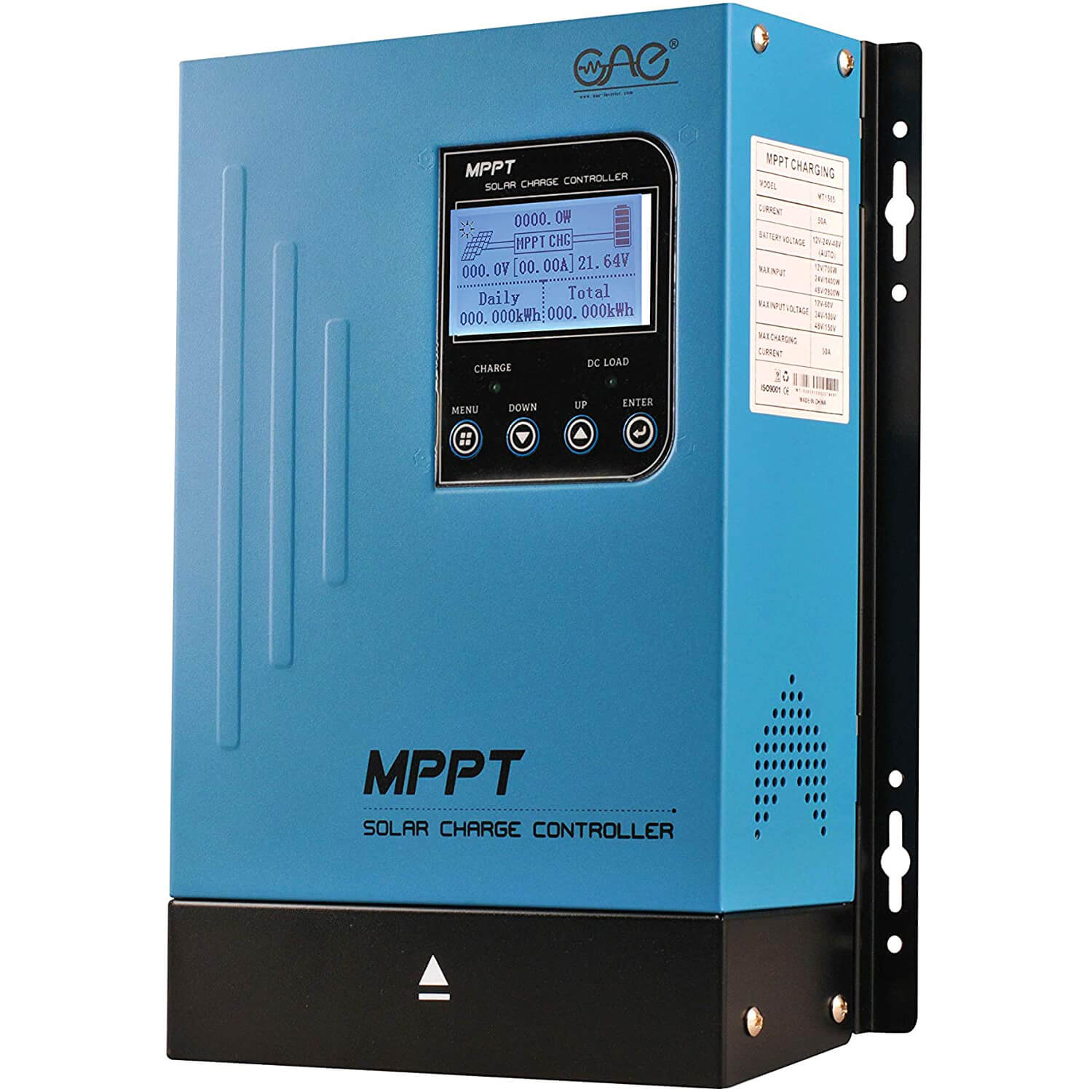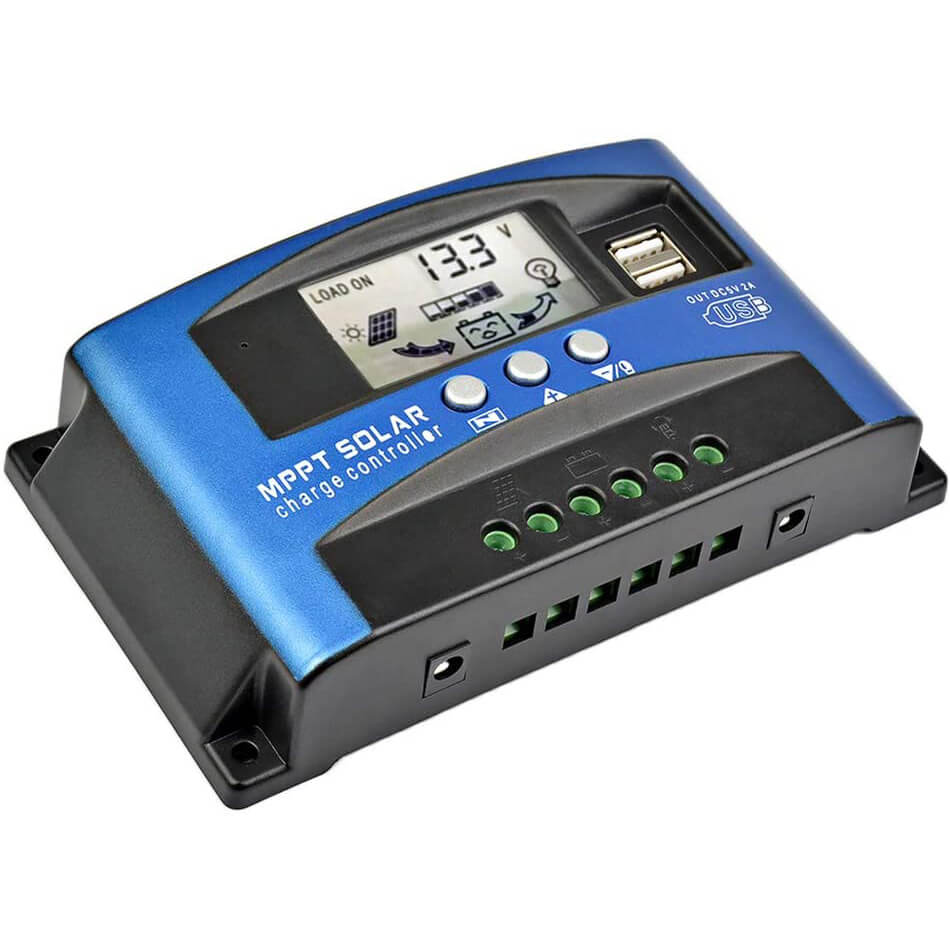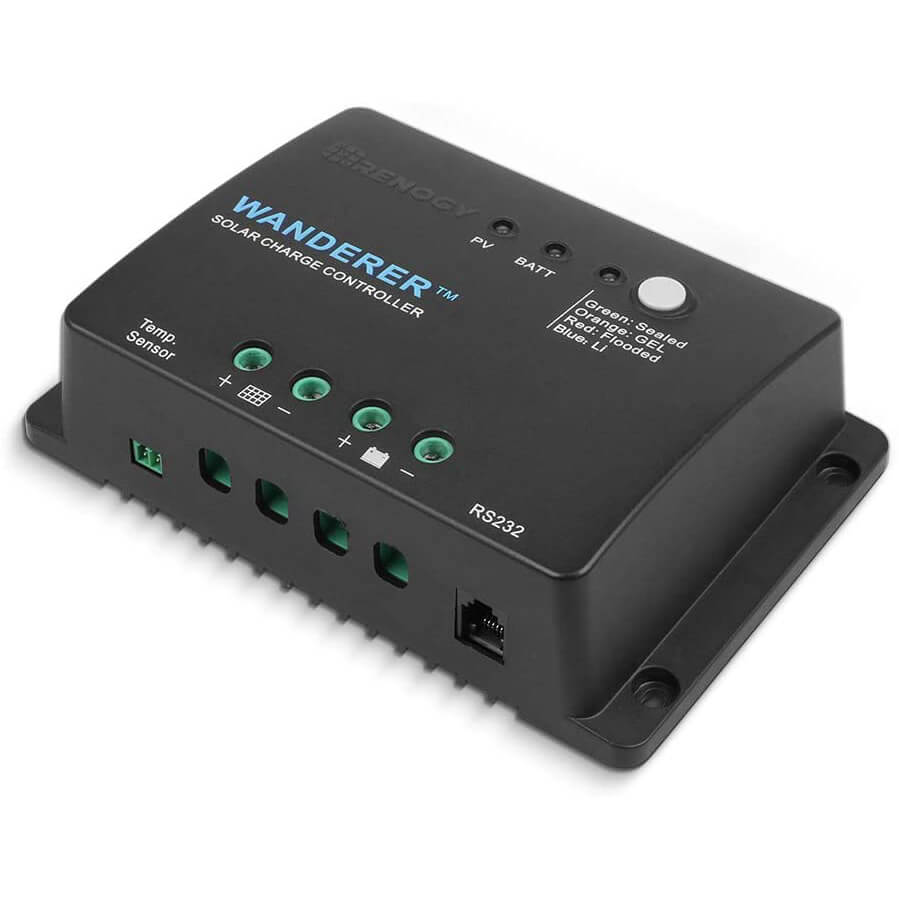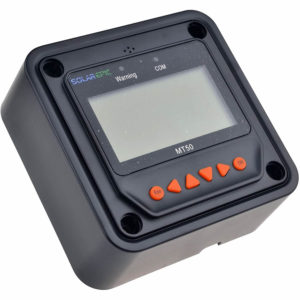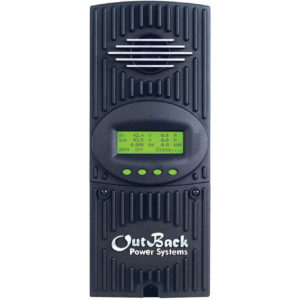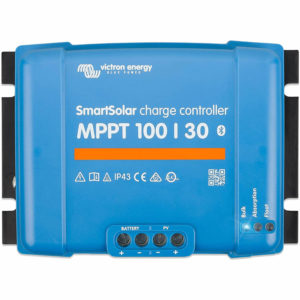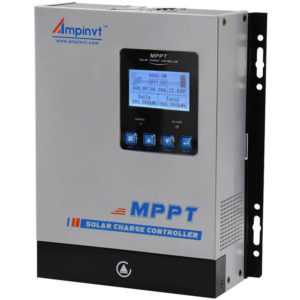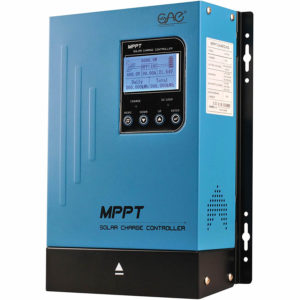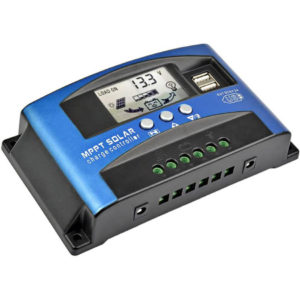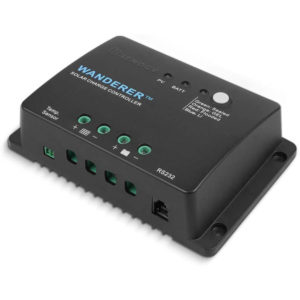Our blog is reader-supported. When you buy through links on our site, we may earn an affiliate commission. Thank you for your support!
Eco-friendly living, like using solar charging systems, is gaining popularity, and for good reason. Choose your equipment carefully to ensure your system works flawlessly, especially the solar charge controller. This device uses advanced technology to regulate and prevent battery overcharging.
How do you find the best option among hundreds? This guide saves you time by presenting top solar charge controllers and highlighting key factors to consider when purchasing.
Read on for our expert reviews of the best solar charge controllers available. Check the latest prices to ensure you get a great deal!
Contents
- 1 Our Top Picks
- 2 7 Best Solar Charge Controllers
- 2.1 1. EPEVER 40A MPPT Solar Charge Controller
- 2.2 2. OutBack Power FM60-150VDC FLEXMax 60 Charge Controller
- 2.3 3. Victron Energy SmartSolar MPPT 100V 30 amp 12/24-Volt Solar Charge Controller
- 2.4 4. AMPINVT 60A MPPT Solar Charge Controller
- 2.5 5. Onesolar 60A MPPT Solar Charge Controller
- 2.6 6. SUNYIMA 60A MPPT Solar Charge Controller
- 2.7 7. Renogy Wanderer Li 30A 12V PWM Negative Ground Charge Controller
- 3 Solar Charge Controller Buying Guide
- 3.1 Key Takeaways
- 3.2 What Is a Solar Charge Controller?
- 3.3 What Is An MMPT Charge Controller?
- 3.4 What Is A PWM Charge Controller?
- 3.5 How Does A Solar Charge Controller Work?
- 3.6 What Is the Function of A Solar Charge Controller?
- 3.7 What Size Charge Controller Do I Need?
- 3.8 Features to Look for in Solar Charge Controllers
- 4 Case Study: Enhancing Solar Energy Efficiency with Advanced Charge Controllers
- 5 Expert Insights From Our Solar Panel Installers About Best Solar Charge Controllers
Our Top Picks
Image | Name | |
|---|---|---|
EPEVER 40A MPPT Solar Charge Controller | ||
OutBack Power FM60-150VDC FLEXMax 60 Charge Controller | ||
Victron Energy SmartSolar MPPT 100V 30 amp 12/24-Volt Solar Charge Controller | ||
AMPINVT 60A MPPT Solar Charge Controller | ||
Onesolar 60A MPPT Solar Charge Controller | ||
SUNYIMA 60A MPPT Solar Charge Controller | ||
Renogy Wanderer Li 30A 12V PWM Negative Ground Charge Controller |
7 Best Solar Charge Controllers
1. EPEVER 40A MPPT Solar Charge Controller
The EPEVER 40A MPPT Solar Charge Controller is one of the finest options with a unique approach to regulating the current. It features Maximum Power Point Tracking (MPPT), offering significantly high operation efficiency. Moreover, the device allows several connections, so you can easily use it for a large solar charging system.
Features
Unique Design and Operation
Unlike most other solar charge controllers, the EPEVER Solar Charge Controller is divided into two pieces. The setup comprises a full-fledged, negatively grounded charger with a separate remote meter with an attached cable. The meter can automatically detect the type and parameter data of the controller and the battery.
Efficiency and Multiple Panel Connectivity
This controller features an advanced MPPT algorithm, having the capacity of handling multiple solar panels in series. The device can withstand five panels of 12V each, with minimum energy loss. Moreover, its tracking efficiency is greater than 99.5%, so you can rest assured that your battery is safe from overcharging.
Battery Compatibility
Another excellent feature of this controller is that it is compatible with 3 different types of batteries. These include lead-acid, flooded, sealed AGM gel, and user-defined. Plus, the meter lets you set your required charging parameters with ease.
Extra Features and Accessories
Extra is always good, and when it comes to this device, the temperature sensor and PC connectors are fantastic. The former allows you to keep a watchful eye on whether the battery is heating up, and the latter transfers your data to the pc.
Pros:
- This controller supports multiple types of batteries
- The metal case construction guarantees maximum heat dissipation
- It ensures minimum loss of energy while transfer
- The controller has a high tracking efficiency
- It comes with a battery temperature sensor
Cons:
- It may be slightly expensive for some
2. OutBack Power FM60-150VDC FLEXMax 60 Charge Controller
OutBack Power’s FlexMax 60 features cutting-edge technology that significantly boosts the battery output. It is a single-piece, high-quality solar charge controller. Though relatively costly, this piece offers multiple benefits over its competitors, making it completely worth it!
Features
High Quality and Efficiency
It is one of the highest quality solar charge controllers that maximizes the performance of your solar charging system. With this device, your battery bank will receive a PV output of up to 30% higher than the other options. In fact, the controller can provide up to 98% efficiency.
Wide Operating Range
It is a versatile solar charge controller, ready for temperatures spread over a wide range. It can provide total power output, i.e., 60-80 Amps, in temperatures from -40°C as high as 40°C. Thanks to its advanced active and intelligent thermal management cooling, you need not worry about its functionality even in extreme weather conditions. Plus, it is compatible with batteries ranging from 12-60 VDC.
Reliability
The OutBack Power’s FlexMax 60 comes with a standby power consumption of up to 1 week. Moreover, the controller has a standard warranty of up to 5 years that you can extend to 10 years. Therefore, it is one of the most reliable options out there!
Ease of Use
This state-of-art solar charge controller is fully programmable. You can operate the device in English or Spanish and access data from the last 128 days of operation. Its built-in data logging allows you to track amp-hours, float time, maximum and minimum battery voltage, and much more.
Pros:
- It has a built-in feature of 128 days of data logging
- The device increases power output by up to 30% higher than usual
- It works in a wide range of temperatures and supports 12-60 VDC voltage
- The controller has a standard warranty of 5 years
Cons:
- The controller is relatively heavier than other operations
- It is significantly expensive
3. Victron Energy SmartSolar MPPT 100V 30 amp 12/24-Volt Solar Charge Controller
The Victron Energy SmartSolar Charge Controller is one of the highly efficient options available. It is a 30A controller that ensures minimum power wastage through transfer and allows you to monitor the setup remotely.
Features
Bluetooth Integration
Its feature that certainly tops the list is its Bluetooth integration. You can connect the solar charge controller with any of your smart devices and monitor the battery charging remotely. It has the VicrtonConnect application that you can use to connect and control whenever you want.
Maximum Power Transfer
This 100-volt 30A solar charge controller ensures the total power produced by the solar panels is transferred to the battery. The device uses the fastest technology to maximize power, improving overall efficiency. You get all of this within an impressively short period.
High Minimum Battery Voltage
Do you often end up with your battery bank going as low as 0 volts? With the Victron Energy SmartSolar Charge Controller, you need not worry about this issue. This device will support even a wholly depleted battery (as far as the cells are not damaged).
Wide Range of Application
Owing to its wireless integration with a smart device, the range of application significantly increases for this controller. From RVs to cabins and tents, you can use this piece of equipment with the utmost ease, irrespective of your location. Plus, this device is ultralight so that you can carry it out seamlessly.
Pros:
- The controller is lightweight and easy to set up
- You can control and monitor battery status remotely
- It lets you charge batteries that are as low as 0 volts
- The device ensures fast charging within a short period
Cons:
- The device lacks a digital screen
4. AMPINVT 60A MPPT Solar Charge Controller
The AMPINVT is a 60A, mid-ranged MPPT solar charge controller that performs remarkably well. The controller provides highly accurate charging readings and efficiently transfers power to batteries and other electronics. Moreover, this piece of equipment protects your battery from multiple types of severe damages!
Features
Programmability
Do you think a device as small as a charge controller will allow you over 10 different controls? Well, it does! This piece got you covered, from basics like language, date, and sound to vital details like records, connections, parameters, and more. Apart from real-time statistics, its LCD display also allows you to track daily and current power generation curves!
Compatibility
With this charge controller, you need not limit your set solar panels or the batteries you need to charge. The charge controller is compatible with panels ranging from 990W to 3400W with a voltage range of 12V to 48V, respectively. Additionally, the AMPINVT 60A also supports four types of batteries, including sealed gel AGM, flooded, lithium, and user-defined.
Efficiency
This controller tracks the exact power transfer quite precisely, with its tracking accuracy being over 99.73%. Plus, it has a high (98.5%) charging efficiency, which is almost 25-50% greater than others due to its MPPT technology.
Safety
Despite the impressive speed, this charge controller ensures maximum protection for your battery and the solar charge system. It prevents overcharging and discharging, overheating, short circuit, and reverse polarity to ensure flawless functionality.
Pros:
- It lets you change and control a host of settings
- The device supports multiple types of batteries
- It comes with a temperature sensor
- The controller has significantly high efficiency, tracking speed, and accuracy
- This controller protects your battery from overcharging and other types of damages
Cons:
- The fuse (replaceable) may blow out within a few months
5. Onesolar 60A MPPT Solar Charge Controller
The Onesolar 60A MPPT Solar Charge Controller offers all the features of a quality controller without the expensive price tag. From efficient performance to numerous accessibility features, it is undoubtedly one of the best solar charge controllers out there.
Features
LCD Display and Controls
The prime role of a charge controller is that it allows you to monitor the battery charging, and Onesolar’s is ideal for that. Its LCD display is highly informative, offering readings of real-time energy statistics, daily and current power generation curves, and more. Plus, you get a range of control options to set the computer, DC output, charging parameters, and other vital settings.
Performance Efficiency
One of the best features of this controller is that you can completely trust its readings and statistics. With advanced technologies and algorithms running the controller, its tracking rate is as high as over 99%. Moreover, the device covers energy at a fantastic rate of over 98%, ensuring minimum power wastage during transmission.
Compatibility
If you wonder which solar panel or battery would your controller support, you need not worry anymore. The Onesolar charge controller is fit for panels of 900W, 1700W, and 3400W. Each of these holds the voltage capacity of 12V, 24V, and 48V, respectively. Additionally, you can use the device to charge flooded, sealed, user-defined, and gel batteries.
Protection
One of the major glitches you may face in solar charge systems is overcharging and short circuits. Such incidents can damage not only the battery but the entire charge system. The Onesolar charge controller ensures maximum protection against such hazards as well as others like battery under-voltage, overheating, etc.
Pros:
- It is compatible with multiple types of batteries and solar panels
- The controller prevents short circuit, overcharging, and other such hazards
- Its LCD provides extensive real-time data
- You can easily program the controller according to your requirements
Cons:
- It might not perform the best with lead-acid batteries
6. SUNYIMA 60A MPPT Solar Charge Controller
The SUNMIYA 60A MPPT Solar Charge Controller is the ideal option for those of you looking for an economical alternative. It is an LCD controller that has two USB slots along with other load connecting options Plus, it is compatible with solar panels of various capacities, which significantly increases its range of applications.
Features
Reliable
The best feature of this controller is its high reliability. From preventing overvoltage, load, charge, etc., to ensure automatic charging tracking, this device got you covered. It does not only keep mishaps at bay but also makes sure to detect charging continuously. Moreover, with its tracking efficiency as high as 99%, you need not worry about its long-term performance.
Informative LCD
The LCD will automatically display the readings of your battery as soon as you connect it. Apart from the battery charging status, the screen provides information like the load on and off, current voltage, and more.
Connectivity
This particular solar charge controller can connect solar panels with ranges from 30A to 60A. The power consumption starts from 360W to 720W, respectively. Besides, you can also use the intelligent controller for both lead-acid and lithium batteries.
Reasonable Prices
Its price aspect is what sets the SUNMIYA solar charge controller apart from others of its kind. This is a highly cost-effective option that offers all the top features of a controller. Therefore, if you want a cheaper option, this is it.
Pros:
- The device supports two types of batteries
- It is a pocket-friendly charge controller
- You can connect the controller to panels of up to 720W
- It includes two USB slots for connection
- The device is highly efficient (99%) in tracking the maximum power
Cons:
- It might not work well enough with multiple panels connected simultaneously
7. Renogy Wanderer Li 30A 12V PWM Negative Ground Charge Controller
The Renogy Wanderer Charge Controller is another excellent budget-friendly option for efficient battery charging. Despite being highly reasonable, the drawback it brings along is the long wire requirement that decreases the final power output. Nevertheless, the controller has some spot-on features.
Features
LED Indicators and Selection Buttons
This controller works differently, such that it does not have an LCD screen. The LED lights present on the device signify the various readings as well as battery type. You can use the button to change the battery type.
Four-Stage Charging Process
The Renogy Wanderer follows a unique charging approach to enhance battery life and improve overall performance. Its 4-step process includes charging a depleted battery in bulk amount, boosting the charge, letting it float, and equalizing it. This way, it prevents discharge or wastage of power.
Compatibility
This state-of-the-art device is compatible with four types of different batteries. These include sealed, gel, flooded, and lithium batteries. You can just plug in the connectors in the specified slot when needed.
Additional Features
The built-in temperature sensor is downright the best feature of this device. It lets you be aware of the battery temp and compensates and corrects any excessive temperature. The sensor works by automatically charging or discharging the battery as required to extend battery life.
Additionally, it includes an optional Bluetooth module. Once you connect the tiny module to the controller, you can monitor the battery charging activities from your smart device.
Pros:
- It includes a temperature sensor
- The controller is compatible with 4 types of batteries
- It comes with multiple LED indicators
- The device is ultralight and easy to use
- It comes with an optional Bluetooth module for remote monitoring
Cons:
- It lacks LCD
Solar Charge Controller Buying Guide
Solar charge controllers are downright the heart and soul of a solar charging system. They not only act as mediators for energy transfer but let you keep a watchful eye on the real-time data. Plus, you do not want to ruin your battery with overcharging and other such phenomena!
To help you choose the best solar charge controller, this buying guide will let you learn all about this device. You can only grab the right one after you know what the right one is!
Key Takeaways
- A solar charge controller is essential for regulating energy transfer between solar panels and batteries, protecting them from overcharging and damage.
- There are two main types of solar charge controllers: MPPT (Maximum Power Point Tracking) and PWM (Pulse Width Modulation), with MPPT being more efficient for larger systems.
- When selecting a solar charge controller, consider factors like input voltage, battery type, current capacity, voltage rating, online monitoring, networking capabilities, auxiliary control, efficiency, display type, and warranty to ensure the best performance and protection for your solar setup.
What Is a Solar Charge Controller?
A solar charge controller or regulator is a current-transmitting device that also allows you to regulate the energy flow. You can use this controller to connect the solar panels with batteries and other loads and control the current transfer.
When you hit the market, you will come across a host of solar panels with varying voltage capacities. Moreover, the amount of power consumption may not be exactly similar to the one mentioned on the panel.
A solar charge controller lets you ensure your batteries and other electronic appliances do not get damaged due to over-loading/charging. It is especially vital if you are using multiple panels with high power output.
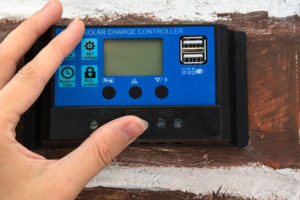
What Is An MMPT Charge Controller?
When you get to purchasing the best solar charge controller, you are sure to get confused between MMPT and PWM.
The Maximum Power Point Tracking solar charge controller works by finding the perfect blend of voltage and current to produce maximum power. This continuous adjustment leads to providing the highest amount of energy possible at any given point in the day.
As a result, it offers 30% higher efficiency than its counterpart — the PWM controller. Besides, these controllers constantly track the power flow, letting you closely track the battery status.
What Is A PWM Charge Controller?
The Pulse Width Modulation (PWM) solar charge controller connects the solar panel with the battery with basic controlling options.
The device transmits power to the battery until it reaches a certain point of absorption charge voltage. Post this, the energy transfer is slowed with the rapid open and close of the switch, ensuring a constant flow.
This type of controller is an ideal cost-effective option for 12V solar systems with fewer (1-2) panels. That is because though it works great, the controller significantly reduces the energy produced by the panel to match the battery voltage. Consequently, it leads to power wastage and lower efficiency.
How Does A Solar Charge Controller Work?
A solar charge controller works by pumping solar energy converted by the panels to batteries, inverters, and other electronic appliances. Once the device is almost fully charged, it reduces the current to ensure the battery stays full over a prolonged period.
Check out this step-by-step breakdown of how does a solar charge controller work:
- Connect the controller to the batteries first, followed by the solar panel.
- The setup is easy with all the ports named appropriately.
- The controller will transfer energy converted by the panels to the batteries.
- You can regulate the power transmission through different setting options (available in most controllers).
- Some advanced controllers come with a temperature sensor to charge batteries with a higher voltage in cold weather and vice versa.
- You can also grab a regulator that offers remote controllability with the help of Bluetooth integration.
What Is the Function of A Solar Charge Controller?
The prime function of a solar charge controller is to regulate the energy transfer between solar panels and batteries (or other loads). In the absence of a controller, the transmission of power will be inconsistent, which can cause significant damage to the batteries.
The solar charge controller ensures continuous flow of energy until full charge and reduces the voltage thereafter. This way, the regulator protects the battery from over or undercharging, short circuits, and other such instances.
Besides, if you run a battery at a low charge or take it to zero, the chances of getting ruined can rise tremendously. The solar charge controller also saves batteries from extreme discharging, ensuring a longer lifespan.
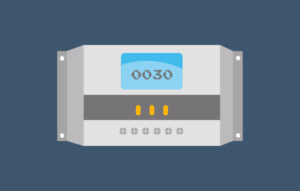
What Size Charge Controller Do I Need?
You can determine the right size of charge controller by the number of solar panels you have and each of their capacities. The device must be capable of handling the power and voltage of your solar array.
If your solar system’s volts are 24V and the amps are 30A, you need a controller of at least 30A. However, due to variable environmental aspects, it is always safe to take it 25% higher. Therefore, a charge controller with at least 37.5A will be apt for your system.
Features to Look for in Solar Charge Controllers
You do not want the entire setup to get ruined due to the futility of one low-quality part, do you? Well, all you got to do is consider a few vital factors to prevent any mishaps. Walk through these factors that you need to watch out for while choosing the best solar charge controller.
Input Voltage
The prime essential factor of consideration is the maximum input voltage, i.e., the total voltage of the solar panels. A 12V panel might transfer higher volts of current due to the varied sunlight conditions. Plus, if you have a grid of panels, you will need a higher maximum input than the total voltage provided by those panels.
Battery Voltage
You can choose a battery with voltage ranging from 12-48VDC. However, make sure it is in line with the appliances you need to run. The larger the household, the more volts they will require.
Current
Apart from voltage, you must consider the total amps that your controller can transfer to your devices. Charge controllers compatible with devices belonging to the range of 20A to 30A may have a lower capacity.
Voltage Rating
The voltage rating or the size of solar charge controllers are based on solar current and battery voltage. You can find controllers ranging from 12V to 24V and 48V, while the available amperage ratings are 1-80 amps.
Battery Type
Every solar charge controller that you get your hands on may not support all kinds of batteries. The different types include lead-acid, lithium, flooded and gel batteries. Each of these options has its respective pros and cons in terms of leakage, efficiency, and more.
MPPT vs. PWM Charge Controllers
While MPPT charge controllers provide relatively higher efficiency, PWM ones are more pocket-friendly than the two. In a nutshell, if you have a large system of 2 or more solar panels, MPPT is the better option. You can opt for PWM in case you have a small solar charge system with low voltage requirements.
Online Monitoring
One of the latest features that you must look for in a charge controller is remote monitoring. With the help of Bluetooth and application integration, these devices allow you to track real-time data from your smart devices. With online monitoring, you will not need to stand by the setup for a close watch.
Networking Capabilities
Modern charge controllers have the potential to communicate with the other components in the charging system. These include batteries, inverters, generators, etc. Make sure your controller has this feature for a smooth energy flow.
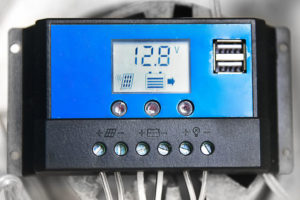
Auxiliary Control
This feature lets the solar charge controller regulate other components. You can set the required settings, and the device will control the connected devices accordingly.
Efficiency
While transferring energy, the charge controller may consume a part of the power. Look for a controller that transmits 99% of the energy, minimizing wastage.
Display
LED: Basic controllers come with LED lights that indicate the type, status, and other readings of the battery.
LCD: Offers a range of real-time power transfer and battery readings along with multiple setting options.
Warranty
You do not want to purchase an expensive device that gets ruined with a few months’ usage, right? Opt for a solar charge controller that has a warranty of at least 1-5 years.
Case Study: Enhancing Solar Energy Efficiency with Advanced Charge Controllers
Background
At Solar Panels Network USA, our mission is to provide our clients with the most efficient and reliable solar energy solutions. This case study highlights our experience in implementing advanced solar charge controllers to optimize the performance of solar power systems for residential clients.
Project Overview
A homeowner approached us with the goal of upgrading their existing solar power system to enhance efficiency and reliability. They wanted to ensure their system could handle future expansions and maintain optimal performance.
Implementation
We began by assessing the client’s current solar setup and energy needs. The existing system included several solar panels but used an outdated PWM (Pulse Width Modulation) charge controller. After a thorough evaluation, we recommended upgrading to an MPPT (Maximum Power Point Tracking) charge controller due to its superior efficiency and advanced features.
Components:
- MPPT Charge Controller: Chosen for its ability to maximize energy harvest by continuously adjusting to the optimal voltage and current.
- Battery Bank: Included to store excess energy, providing a reliable power source even during low sunlight conditions.
- Monitoring System: Installed to allow the homeowner to track energy production and usage in real-time.
Steps:
- System Assessment: Evaluated the existing system’s performance and identified areas for improvement.
- Controller Upgrade: Replaced the old PWM controller with a new MPPT controller, ensuring compatibility with the existing solar panels and batteries.
- Installation and Configuration: Installed the MPPT controller and configured it to optimize energy flow from the panels to the battery bank.
- Testing and Monitoring: Conducted thorough testing to ensure the system was functioning correctly and set up a monitoring system for real-time tracking.
Results
The upgrade to the MPPT charge controller resulted in a noticeable improvement in the system’s efficiency. The homeowner reported a significant increase in the amount of solar energy captured and stored, leading to reduced reliance on the grid and lower energy bills.
Performance Metrics:
- Efficiency Increase: The system’s energy harvest improved by approximately 25%, thanks to the advanced tracking capabilities of the MPPT controller.
- Battery Health: The controller’s precise regulation of charging parameters extended the battery bank’s lifespan and performance.
- Real-Time Monitoring: The monitoring system provided valuable insights into energy production and consumption, helping the homeowner make informed decisions about energy usage.
Summary
This case study demonstrates the substantial benefits of upgrading to an MPPT charge controller for residential solar power systems. The enhanced efficiency and reliability of the system not only reduced energy costs but also provided a more sustainable and dependable energy solution. At Solar Panels Network USA, we are committed to leveraging the latest technology to deliver superior solar energy solutions tailored to our clients’ needs.
Expert Insights From Our Solar Panel Installers About Best Solar Charge Controllers
Choosing the right solar charge controller is crucial for the longevity and efficiency of your solar power system. A high-quality controller not only maximizes power output but also protects your batteries from overcharging and other potential damage.
Senior Solar Installer
The technology behind MPPT controllers is impressive. They adjust the power output to match the optimal voltage and current, ensuring you get the most energy possible from your solar panels.
Lead Renewable Energy Consultant
I’ve seen a significant improvement in system performance with MPPT controllers. They offer better tracking efficiency and can handle more complex setups, which is ideal for larger solar installations.
Solar Energy Technician
Our Expertise in Solar Products
At Solar Panels Network USA, we’re not just installers; we’re enthusiasts, researchers, and users of solar charge controllers. Over the years, we’ve been at the forefront of solar technology, understanding the nuances and intricacies of various solar-powered gadgets. Our team has hands-on experience with a wide range of solar charge controllers, and we’ve witnessed the evolution of these essential devices from their inception to the advanced versions available today.
Why Trust Our Reviews?
- Hands-On Testing: Before penning down any review, our team spends weeks testing solar charge controllers. For this article, we rigorously evaluated and utilized each controller in various settings, ensuring we understand their performance in real-world scenarios.
- Continuous Learning: We regularly attend solar technology conferences, workshops, and seminars. This continuous learning ensures we’re always updated with the latest solar tech, allowing us to evaluate controllers against the most recent standards.
- Feedback Loop: Over the years, we’ve built a community of solar enthusiasts. We often reach out to them for feedback on controllers, ensuring our reviews aren’t just based on our perspective but are a reflection of the broader community’s experiences.
- Transparency: Whenever we receive controllers for review from manufacturers, we ensure full transparency with our readers. For this article, some controllers were purchased by our team, while manufacturers sent others. However, our reviews remain unbiased, focusing solely on the product’s performance.
- Decades of Experience: Collectively, our team has over two decades of experience in the solar industry. From understanding the technical aspects of solar cells to the functionality and efficiency of solar charge controllers, our expertise spans wide and deep.
In this article, we’ve combined our personal experiences, technical knowledge, and feedback from our community to provide you with comprehensive reviews of the best solar charge controllers for 2025. We believe that our expertise, combined with our commitment to transparency and continuous learning, makes us a reliable source for solar charge controller reviews.
Conclusion
Did you know the Earth receives about 430 quintillion Joules of energy each hour? That means 18 more zeroes after the 430! While it is interesting to note, it also refers to the golden (literally) opportunity you have to use the free energy source. Moreover, humans only require a total of 410 quintillion joules!
An efficient solar charge system lets you use this energy indefinitely, curbing your expenses as well as carbon footprint. While you are at it, make sure to choose the best solar charge controller to monitor power transfer and prevent mishaps!
About the Author
Solar Panels Network USA stands at the forefront of solar energy solutions, driven by a team of seasoned solar engineers and energy consultants. With over decades of experience in delivering high-quality solar installations and maintenance, we are committed to promoting sustainable energy through customer-centric, tailored solutions. Our articles reflect this commitment, crafted collaboratively by experts to provide accurate, up-to-date insights into solar technology, ensuring our readers are well-informed and empowered in their solar energy decisions.

